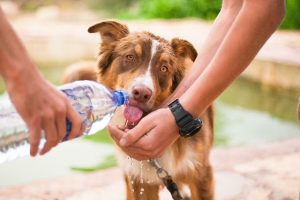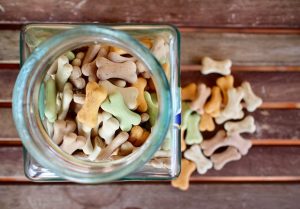Developmental psychologists strongly recommend getting adolescents involved in caring for pets to help them forge better social connections in their community. Researchers in Boston’s Tufts University conducted a survey of young adults who exhibited a strong attachment to animals, with whom they had formed pet-owner relationships since adolescence.
 Study author Dr. Megan Mueller, a developmental psychologist who holds a doctoral degree in child development from Tufts, led a research team that surveyed a group of more than 500 participants, mostly female between ages 18 and 26. Their goal was to evaluate the general impact of interacting and caring for animals with whom they shared bonds since adolescence.
Study author Dr. Megan Mueller, a developmental psychologist who holds a doctoral degree in child development from Tufts, led a research team that surveyed a group of more than 500 participants, mostly female between ages 18 and 26. Their goal was to evaluate the general impact of interacting and caring for animals with whom they shared bonds since adolescence.
According to Dr. Mueller, their findings suggest that it’s not whether an animal is present in the life of young adults during their development, but more on the quality of the relationship forged with animals. The young adults in Dr. Mueller’s study who gave indications of having a strong attachment to their pets, also indicated having more confidence in forming community connections and social relationships.
Dr. Mueller admits that their study does not offer proof that caring for pets can make children grow up happier and become responsible adults. Yet understanding the role of animals and their effects on our lives is a good start in comprehending the importance of engaging in contribution activities.
 Young adults will have raised awareness that actively participating in a pet’s care, will help them attain higher levels of attachment to their animal. As they enter stages of early adulthood, they will have greater empathy and confidence in working towards associating not only with animals, They will also develop sensitivity for other people in their community, especially those deemed as vulnerable and needing help.
Young adults will have raised awareness that actively participating in a pet’s care, will help them attain higher levels of attachment to their animal. As they enter stages of early adulthood, they will have greater empathy and confidence in working towards associating not only with animals, They will also develop sensitivity for other people in their community, especially those deemed as vulnerable and needing help.
Importance of Parental Involvement in Teaching Pet Care to Adolescents
Parental involvement is important in making pet-care activities beneficial in the development stage of adolescents. Mainly because it’s important to make the experience positive for everyone. Careless treatments, especially when it comes to providing food, water and shelter, often lead to all sorts of animal health problems. The dog food expert also recommends that parents guide their children on proper food management for their pets.
 Bear in mind that young children are still ill-equipped to make decisions on what is good or bad for their pet, Parents therefore must include explanations on how animals, just like humans need healthy and clean food while in a safe environment. Even something as simple as properly storing dog food in a clean, air-tight dog food container is something that a child must understand as an essential pet care practice.
Bear in mind that young children are still ill-equipped to make decisions on what is good or bad for their pet, Parents therefore must include explanations on how animals, just like humans need healthy and clean food while in a safe environment. Even something as simple as properly storing dog food in a clean, air-tight dog food container is something that a child must understand as an essential pet care practice.
Actually, parents should still oversee handling and storing of dog food, since children may not be aware of how contaminants can get into storage bins. After all, parents are children’s role models from whom they will learn what responsible pet ownership means.
